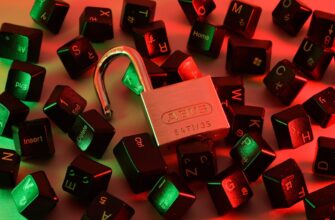- Is Buying Crypto Halal? Understanding the Debate
- What Makes an Investment Halal?
- Arguments for Crypto Being Halal
- Concerns About Cryptocurrency in Islam
- How to Evaluate if a Cryptocurrency Is Halal
- Fatwas and Scholarly Opinions on Crypto
- FAQ: Is Buying Crypto Halal?
- Conclusion: Balancing Innovation and Faith
Is Buying Crypto Halal? Understanding the Debate
The question “Is buying crypto halal?” has sparked intense debate among Islamic scholars, investors, and financial experts. Cryptocurrencies like Bitcoin and Ethereum operate outside traditional banking systems, raising concerns about their compliance with Sharia principles. This article explores the Islamic perspective on cryptocurrency, analyzing its permissibility, risks, and ethical considerations.
What Makes an Investment Halal?
Islamic finance follows strict guidelines derived from the Quran and Sunnah. Key principles include:
- Prohibition of Riba (Interest): Earning or paying interest is forbidden.
- Avoiding Gharar (Uncertainty): Transactions must be transparent and free from excessive risk.
- Ethical Compliance: Investments must not support haram industries (e.g., alcohol, gambling).
- Asset-Backed Value: Money should derive value from tangible assets or services.
Arguments for Crypto Being Halal
Proponents argue cryptocurrencies can align with Islamic principles:
- Decentralization: Crypto eliminates centralized control, reducing exploitation risks.
- Utility: Blockchain technology enables secure, interest-free transactions.
- Inflation Hedge: Limited supply coins (e.g., Bitcoin) may protect wealth, akin to gold.
- Charity Use Cases: Crypto donations support humanitarian causes efficiently.
Concerns About Cryptocurrency in Islam
Critics highlight potential conflicts with Sharia law:
- Speculation: Extreme price volatility resembles gambling (maysir).
- Lack of Intrinsic Value: Unlike gold or real estate, crypto isn’t backed by physical assets.
- Regulatory Risks: Many governments ban or restrict crypto trading.
- Illicit Activities: Anonymity could enable money laundering or fraud.
How to Evaluate if a Cryptocurrency Is Halal
Use this checklist to assess compliance:
- Does the project serve an ethical purpose (e.g., DeFi for financial inclusion)?
- Is the token backed by real-world assets or utility?
- Does it avoid interest-based mechanisms (e.g., crypto lending with riba)?
- Is the network transparent and decentralized?
- Are transactions free from excessive uncertainty (gharar)?
Fatwas and Scholarly Opinions on Crypto
Islamic authorities remain divided:
- Permissible: In 2018, Malaysia’s National Fatwa Council declared Bitcoin halal for transactions.
- Conditionally Allowed: UAE scholars approve crypto if used for lawful goods/services.
- Prohibited: Egypt’s Grand Mufti and Turkey’s Diyanet label crypto as haram due to speculation risks.
FAQ: Is Buying Crypto Halal?
1. Is Bitcoin halal?
Opinions vary. Some scholars approve its use as a currency, while others reject it due to volatility.
2. Can Muslims mine cryptocurrency?
Mining is permissible if the crypto itself is halal and energy sources are ethical.
3. Are stablecoins like USDT halal?
Asset-backed stablecoins (e.g., gold-pegged tokens) may comply with Sharia if audited transparently.
4. How to avoid haram crypto projects?
Research the team, use case, and partnerships to ensure alignment with Islamic values.
Conclusion: Balancing Innovation and Faith
The question “Is buying crypto halal?” lacks a universal answer. While cryptocurrencies offer financial innovation, Muslims must evaluate each project against Sharia principles. Consult knowledgeable scholars and prioritize transparency, ethical utility, and risk management to make informed decisions.








